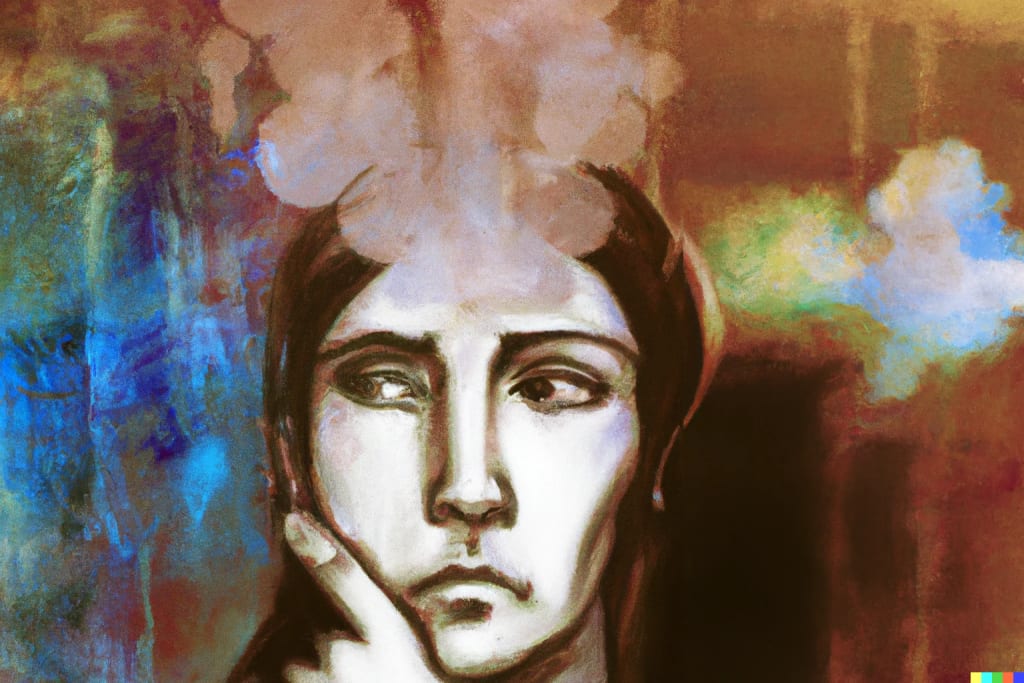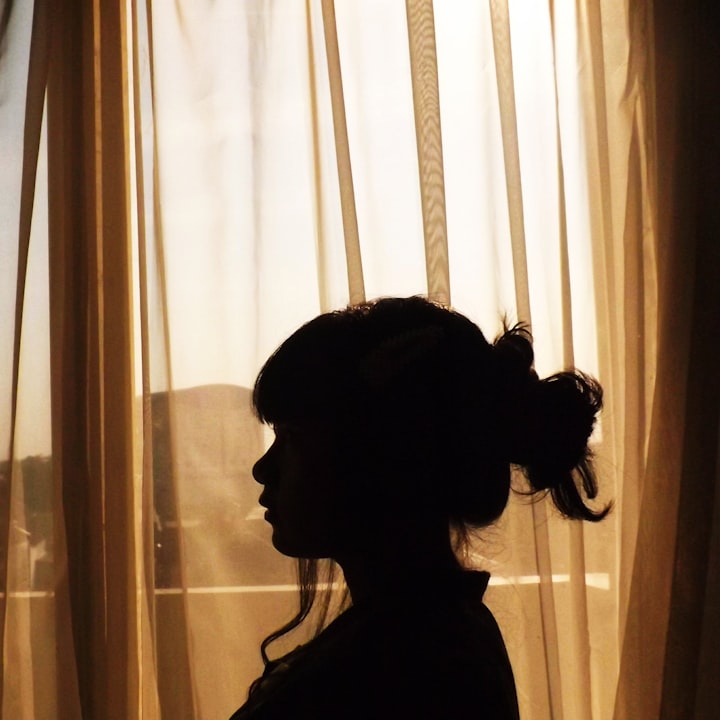I Get Tired Of Thinking About My Sobriety — A Cause For Worry Or Celebration?
Examining the lighter and darker sides of sober thought fatigue.

The longest time I’ve been alcohol free as an adult is sixteen months. The reasons I drank again were complicated, but one notable factor was that I got tired of constantly thinking about not drinking.
As I write this, I’m close to fifteen months sober and aware of my looming sixteen-month personal best. I’m also feeling burned out with focusing on sobriety as much as I do. I have no desire to drink, but the similarity of this feeling to how I felt before my last relapse makes me wary and pushes me to examine it further.
How much thinking is too much?
Within the recovery community, people often have strong opinions about how much time we should spend thinking about our sobriety. Many insist that it must be a daily effort, and to take our eyes off our battle with addiction, even temporarily, is inviting disaster.
Others find that a daily reminder of being in recovery becomes less important over time. This has been my experience. After weathering the first sober days, weeks and months, developing some confidence in our success is possible. I know from experience that becoming complacent is also possible, so self-awareness and honesty are vital.
What’s important here is finding what works best to keep an individual sober. If making recovery a daily priority works for you, that’s great — keep doing what you’re doing. For some people, this may be the only way. If you can think less about recovery but stay reliably alcohol free, that’s also great.
What is my sober thinking focused on?
When problematic drinkers are thinking about alcohol, our thoughts are usually in one of the following directions:
I need to quit, but it’s too hard.
In the early days and weeks of sobriety, it’s impossible not to think about drinking. The cravings can be intense, and our habitual thought patterns can easily trip us up. And while we may be trying to change, our environment often doesn’t.
Alcohol is everywhere. Even if we banish it from our house and avoid going out, it’s on TV, in films and in the news. I once shut myself away with a novel to take my mind off alcohol and read five wine-drinking references within the first two chapters. I wasn’t impressed.
When we first accept we need to stop drinking, it can be hard to believe it’s possible. I spent nine years in this embattled state of mind, and it’s exhausting. Each time I failed, I learned to treat the attempt as research instead of beating myself up. I observed myself and slowly learned things by trial and error. As my sober streaks grew, so did my confidence. I started to believe I could do it, that maybe it wasn’t too hard after all.
I’m now grateful to reclaim the energy I previously spent on that fight. An exciting part of my recovery is discovering positive things to do with that freed-up energy.
Other people can drink; why can’t I?
AKA the denial and bargaining stage. It took far too long for me to accept that I couldn’t moderate when others could. No matter how often I proved myself wrong and suffered hangovers and health issues, I’d watch other people drinking and feel like I was missing out.
Comparing ourselves with other drinkers is both dangerous and pointless. We can skew it in whichever direction we choose. There’ll always be moderate drinkers who make us look bad and heavier drinkers who make us relieved we’re not that bad.
Inherent in these FOMO thoughts is the belief that alcohol enhances our life. It doesn’t, but I refused to believe this for three decades. Accepting that alcohol is full of false promises is a powerful perspective shift that helps us to get — and stay — sober.
Will life without alcohol be worse?
Hell no! Alcohol’s ‘benefits’ are skillfully marketed illusions. Two books that explain this brilliantly are This Naked Mind by Annie Grace and Alcohol Explained by William Porter. I can’t recommend them highly enough if you’re serious about stopping drinking.
They explain what happens to our brains and bodies when we repeatedly drink, withdraw, and drink again. They expose and challenge our subconscious beliefs about the benefits of drinking. They invite us to pay close attention to what really happens when we drink. You might be surprised. I was.
Finally realising that alcohol takes far more than it gives helped make sobriety ‘stick’ for me this time.
How much power does alcohol have over me?
The recovery community has differing opinions on how much power alcohol does, or should, wield over us. Some assign it the power to be a lifelong enemy to be feared, necessitating long-term battle plans. Others want to strip it of its power and reduce it to irrelevance.
I relate more to the latter, but choosing whichever works best for the individual is crucial. A lot might depend on our personality types, life circumstances, and the severity of our addictions. It’s not something I fully understand, and I can only speak from my own experience.
I was once hopelessly addicted to smoking, but cigarettes have been irrelevant to me for twenty-two years. The idea of lighting a cigarette seems ridiculous. Writing this sentence is probably the most thought energy I’ve spent on nicotine in a decade. Even though I know one cigarette would be the start of a slippery, addictive slope, it will never be a possibility that intimidates me.
I hope that one day, I’ll also be this disinterested in alcohol. I’m starting to believe that’s a possibility.
I don’t want to drink. I’ve seen through its illusions, and I don’t miss it.
I often go days without thinking about alcohol at all. I don’t wake up daily and remind myself I mustn’t drink. Not drinking is my default state now. Occasionally, old habitual thoughts still pop up and attempt to persuade me that I’m missing out. I can’t say I never miss alcohol, but I no longer want to drink it.
I still have feelings I would have previously identified as cravings for alcohol. It’s a restless and empty hunger that wants something. But I now understand and accept that something is no longer alcohol. No temporary feeling of numbness or escape is worth the problems my drinking brings. Like a million times before, the difficult emotions would still be there when I sobered up, and now I’d have to deal with them with a hangover. Alcohol solves nothing!
My second year of recovery is about feeling these challenging feelings and discovering new ways of accepting and dealing with them. They no longer tell me to drink. If I pay close attention to when they happen and what I’m thinking, they sometimes show me which aspects of my life need attention or improvement.
---
These are a few stages in the evolution of my thinking about recovery. I can now summarise them in a few hundred words, but the learning required to pass through each stage represents years of struggle. I’m so grateful to have reached where I am now. It’s much better than where I started nine years ago.
I’m relieved to recognise that my occasional mental fatigue about sobriety differs from when I was in a pre-relapse state.
Back then, I was fighting the temptation to try moderation again. Now, I’ve accepted it never has and never will work for me, and the nagging feeling of ‘why me?’ has disappeared.
I used to believe alcohol added to my life, and not drinking felt like missing out. Now I’ve realised my life is bigger and better without it.
Pre-relapse, my thoughts revolved around struggle and frustration. One way of quieting those mental demons was to drink, which I did. It went predictably badly. Those demons have become distant, and my thoughts now revolve around healthy challenges and growth. It’s still hard work but a much better use of my efforts.
I used to get exhausted by the fearful and disempowering nature of my thoughts about sobriety. The obsessive and repetitive thinking wore me down. Now I get tired from the effort I spend analysing the subject and gathering my thoughts into articles and comic strips. It’s a better kind of tired, but sometimes I don’t feel like making that effort, and that’s ok.
I might instead get lost in a good book, fancy a Netflix binge, feel like gaming or decide to get creative in the kitchen. Or I may simply feel lazy and want some downtime.
I don’t want to think about my sobriety constantly. Staying sober is essential but not my whole life or identity. Instead of worrying when I don’t feel like thinking about it, I’ll appreciate how wonderful it is to be free from the burden of obsessive, addicted thinking. And that feels worthy of a cautiously optimistic celebration.
About the Creator
Against The Dream
I create articles, comic strips and poetry on addiction recovery, neurodiversity, introversion and other general nerdery.






Comments
There are no comments for this story
Be the first to respond and start the conversation.